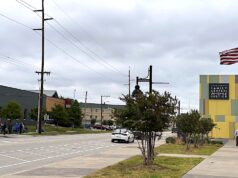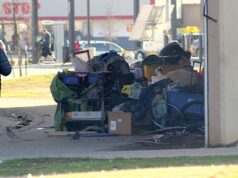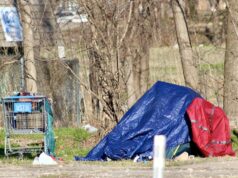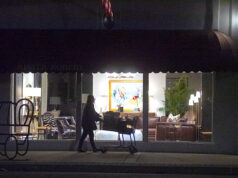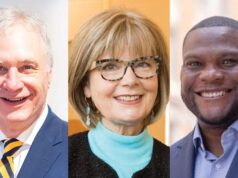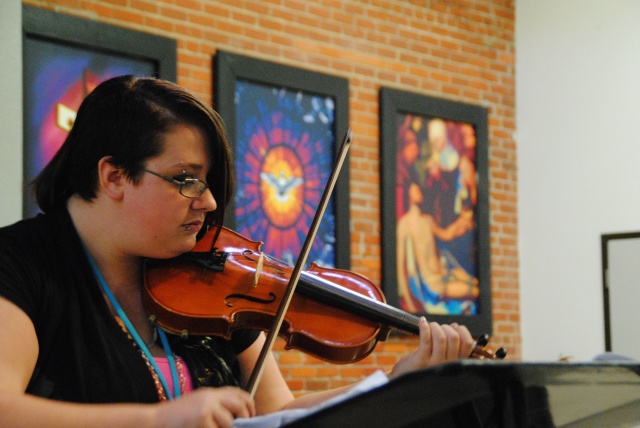

It’s been said that music is very much like religion: How deeply it affects a person can largely depend on when they discovered it. A child born into a traveling band of singing missionaries could profess to love the banjo and the Beatitudes with equal zeal, but might secretly resent or ignore both for their banality.
On the other side of that dime are those who find Jesus or discover Al Green as adults: They might’ve been tone deaf serial killers before the rhythm or the righteousness took them, but it took them hard. They were formed already when the lightning hit them, so it changed them — a gift the lifers will never know.
Music changed Cassy Eckley.
After years of doing her dead-level best to derail a life barely begun, the gift of a violin from an old teacher has set her train back on the tracks. Now, the 18-year-old Eckley talks about the person she was a year ago like some distant, pitied relative.
“I was charged with assault and battery with a dangerous weapon and domestic abuse for attacking my father with a glass ashtray,” Eckley said from the lobby of the City Rescue Mission in Oklahoma City, her home for the past six months and seven days. “I had dropped out after my freshman year and started doing meth. I was just angry all the time, had a lot of hate in my heart. I’d most likely be in prison for murder right now if something wouldn’t have changed.”
Addicted, in and out of shelters and juvenile facilities, and angry for reasons she couldn’t explain, Eckley seemed destined to be one of those sad stories about Drugs Ruining the Life of a Youth With Promise, a story that doesn’t really make anybody sad anymore because it’s been told so many times.
Looking at her now, though, it’s nearly impossible to believe she’s talking about herself, let alone a recent version. Friendly, engaging, and quick to laugh, Eckley said she’s “never been happy in her life until now.” It’s easy to see that she loves explaining why.
“I’m from Mountain Home, Arkansas,” said Eckley, when describing the journey that led her to the bustling, noisy lobby of the mission’s homeless shelter. “In school, I was in choir until I was 11, and then we moved to Oklahoma City. Until we got here, I thought orchestra was a singing class.”
Shortly after enrolling at Mayfield Middle School, Eckley discovered what orchestra really meant, and immediately signed up to play the violin. She played for three years, learning the basics and making it as far as freshman life at Putnam City West High School before her dark years swallowed pretty much everything, the violin least of all. The addiction, arrests and a court-ordered drug program eventually led her to the City Rescue Mission. During a Sunday morning outing to Frontline Church, lightning struck.
“My old orchestra teacher was playing at the service,” Eckley said. “She actually plays for the OKC Philharmonic, and right after we saw each other, she hooked me up with a violin. So I just picked up where I left off.”
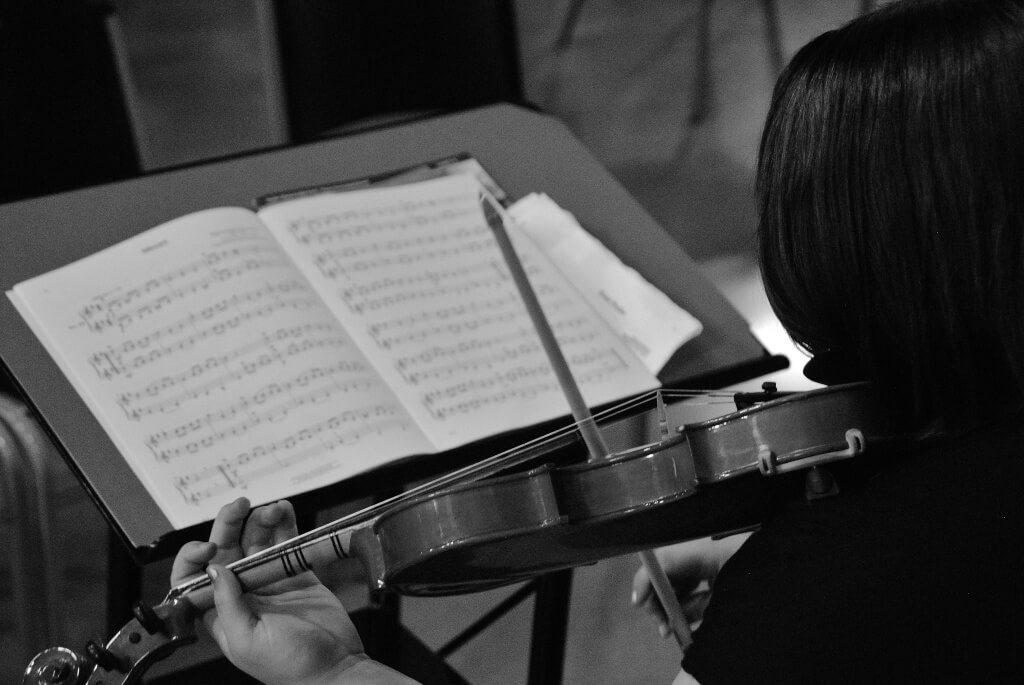
She rounded up some sheet music and began practicing, mostly in the mission’s chapel, not only for its privacy, but for its inspiration. And if “just picking up where she left off” is true, then where she left off was already astounding. Eckley’s playing is confident, well beyond competent, inarguably advanced not only for her relatively brief time at study, but for her destructive hiatus that could have ended it altogether. She floats effortlessly between Mozart minuets and hillbilly dance tunes, strikes notes with the assurance of a seasoned musician, and plays with a depth of feeling that belies her age.
“It did save my life,” Eckley said. “Music just has the power of life in it. Life would be really dull without it, wouldn’t it? When I’m angry or depressed, I can go alone into the chapel and play an angry, depressed song, and I think that takes it out of me, because I always end up playing happy songs. It gives me a peace that I’ve never felt before. It’s calming.
“My relationship with my family has strengthened. There is no more hate in my heart. I’m happy now. When I go into the chapel to play, no matter what I’m feeling, it just gives me a happy, relaxing feeling. If I’m mad, or sad, I know that I’ll be mad or sad until I play again.”
It’s also already presented her with the unique opportunity to hone her fledgling performance skills, something most musicians don’t get to experience until they’re more seasoned.
“I had my first performance,” said Eckley, beaming. “It was the Mission of Hope (fundraiser) at the Cowboy Hall of Fame. I was nervous leading up to it, but when I got up there, all the pressure was gone. It was just me and the music. I loved it.”
She’s lined up another gig at a mission in Noble, and said she’s hoping to book more. She’s got another six months at the mission before completing her drug program, but as for her plans after that, she speaks with the calm assurance of a young woman with options.
“We’ll see what happens in six months,” Eckley said. “I’m able to save some money right now, so I’ll be able to get my own place. I know I want to keep playing, but I don’t care if I get paid or not for that. I just love playing.”
But isn’t she worried? Where will she stay? Does she even consider herself homeless? Eckley ponders for a moment.
“Well, I have a roof over my head,” she said, smiling again. “I have food in my stomach. I have clothes on my back and a bed to sleep in. And I have a violin. So no, I’m not homeless. If we’re still living and breathing, we have a lot to offer. We all need to see that we’re blessed with the little things.”









